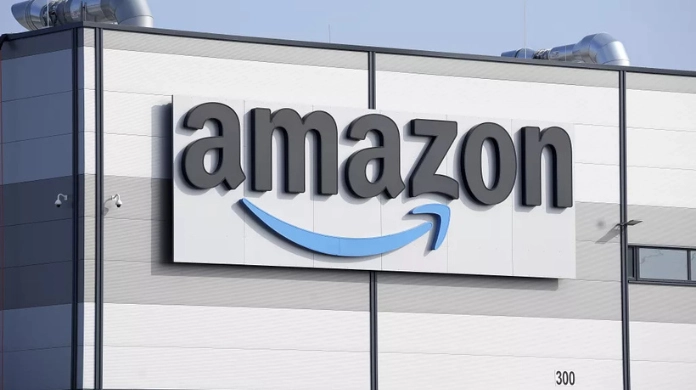The European Parliament is on the brink of escalating its standoff with Amazon, threatening to extend its ban on lobbyists not only from the tech giant itself but also from third-party groups representing its interests. This move comes after a series of high-profile snubs and mounting frustration over Amazon’s perceived lack of accountability regarding working conditions in its European warehouses. The dispute, which has been simmering for years, now threatens to reshape the relationship between one of the world’s largest corporations and the European Union’s most powerful legislative body.
The Roots of the Dispute
Amazon’s No-Shows and Parliament’s Response
The current crisis can be traced back to repeated instances where Amazon failed to send senior executives to testify before the European Parliament’s Employment and Social Affairs Committee (EMPL). Most recently, on June 26, 2025, Amazon did not send a member of its top executive “S-Team” to a hearing focused on working conditions in its warehouses. Instead, the company proposed two vice-presidents, a move that was rejected by MEPs who insisted on hearing from those with global decision-making power.
This was not the first time Amazon had declined to participate in such hearings. Since 2021, the company has missed at least three key parliamentary sessions, each time drawing sharper rebukes from lawmakers and labor advocates. The EMPL Committee had made it clear that attendance by a senior executive was a precondition for reconsidering the ban on Amazon’s lobbyists, which was first imposed in early 2024 after similar no-shows.
The Ban and Its Implications
The initial ban stripped Amazon’s lobbyists of their access badges to the European Parliament, effectively barring them from the corridors of power in Brussels. This was a rare and significant move, previously only seen in the case of Monsanto in 2017. The ban was widely supported by trade unions and civil society organizations, who argued that Amazon’s refusal to engage with the Parliament on issues of labor rights and workplace safety warranted such a sanction.
“If an Amazon worker would have behaved this way towards Amazon management, they would have already been fired three times over,”
stated Oliver Roethig, Regional Secretary of UNI Europa, in a letter to MEPs.
“Amazon must face consequences for such uncooperative behaviour towards our democratic institutions,”
he emphasized during the June hearing.
Parliament Considers Escalation
Widening the Ban
In July 2025, an internal note circulated among MEPs revealed that the Parliament is now considering a much broader ban. The proposal would revoke lobbying access not only for Amazon’s direct representatives but also for every interest group tied to the company, including third-party lobbying firms and industry associations such as DigitalEurope. This would mark a major escalation in the Parliament’s efforts to hold Amazon accountable.
The internal document, seen by several media outlets, outlines options for the EMPL Committee to respond to what lawmakers describe as Amazon’s “lack of accountability” and “repeated snubs.” The note recommends extending the current ban to all third-party lobbying firms representing Amazon, not just Amazon employees. It also suggests asking the European Commission to review public procurement contracts awarded to Amazon, signaling a potential review of the company’s business dealings with EU institutions.
Lawmakers’ Frustration
The frustration among lawmakers is palpable. French MEP Leila Chaibi (The Left) explained,
“From our very first exchanges with Amazon, we insisted that a member of the ‘S-Team’– the executive leadership based in Seattle – be called to testify. Amazon deliberately ignored this request by offering us a Luxembourg-based executive and a lobbyist with no decision-making power.”
She added,
“Amazon must understand that it is not up to the European Parliament to comply with the terms set by a repeat offender multinational. It is Amazon that must be held accountable: it is not above the law, nor above democratic institutions.”
Max Bank, a campaigner with LobbyControl, echoed these sentiments, stating,
“EU institutions should not engage with a tech monopoly that openly disrespects democratic oversight. This behaviour underscores why the EU must rigorously enforce its tech regulations – regardless of lobbying pressure from across the Atlantic.”
Amazon’s Position and Response
Amazon’s Defense
Amazon has defended its actions, insisting that the executives it proposed for the hearing were sufficiently senior and relevant to the topics under discussion. In a statement to The Brussels Times, an Amazon spokesperson said,
“This is perplexing to us, as they are both vice-presidents – a very senior role at Amazon – who oversee large international teams, have significant responsibilities, and are the most relevant to the subject of the hearing.”
The company also invited European Parliament President Roberta Metsola to a closed-door meeting in Washington, D.C., with Senior Vice-President for Global Affairs & Legal, David Zapolsky, a member of the “S-Team.” Metsola’s office did not immediately respond to requests for comment.
Amazon maintains that it takes its engagement with policymakers seriously.
“We employ more than 150,000 people across 21 EU Member States in quality jobs with competitive pay and excellent benefits. We pay up to 12% more than the minimum wage across the EU,”
the company stated in a letter to the committee.
“Our commitment to employee development has resulted in strong retention rates. Safety is our top priority, with more than 1,500 employees in Europe whose full-time jobs are focused on safety.”
Ongoing Access and Lobbying Activity
Despite the ban, Amazon’s representatives have continued to meet with MEPs and senior officials in the European Commission. Figures from Transparency International show that from January to May 2025, Amazon held 38 meetings with EU Commissioners and senior Commission officials. The company remains one of the largest corporate lobby spenders in the EU, with its lobbying activities under increasing scrutiny from watchdog groups and the media.
Sarah Tap, an Amazon representative, commented,
“The European Parliament will allow a fact-based discussion that will focus on the logistics industry as a whole and Amazon’s contribution to the European economy and society.”
She confirmed that the corporation still has “access to the European Parliament,” though the future of that access remains uncertain as lawmakers debate the proposed wider ban.
The Role of Trade Unions and Civil Society
Union Demands and Worker Testimonies
Trade unions, particularly UNI Europa and the European Trade Union Confederation (ETUC), have played a central role in pushing for greater scrutiny of Amazon’s labor practices. They have repeatedly called for the Parliament to maintain and extend the ban on Amazon lobbyists until the company demonstrates a willingness to engage transparently and address concerns over working conditions.
During the June hearing, testimonies from Amazon warehouse workers and union representatives painted a grim picture of life inside the company’s European facilities. Agata Wypior, a trade unionist representing Amazon workers in Poland, testified,
“Warehouse workers are being persecuted with extremely high standards. Targets are increasing and wages are falling. 44% of workers are giving up their meal breaks to meet productivity standards.”
Monika Di Silvestre, a trade union secretary for ver.di in Germany, added,
“Amazon workers from Germany are not here today because they are afraid of their employer. I find it unacceptable that in Europe and across the world, workers would be afraid of standing up for their rights.”
Calls for Transparency and Accountability
Unions and civil society groups have also demanded full transparency regarding Amazon’s contracts with European institutions. They argue that the EU should not be doing business with a company that refuses to submit to democratic oversight and is accused of labor abuses. Oliver Roethig of UNI Europa stated,
“We welcome the EMPL Committee’s principled decision to maintain the Amazon lobby ban and reject the company’s attempt at evading public scrutiny in a closed-door meeting. Now, we want to see another, cross-committee hearing on the broader dimensions of Amazon’s abuse – its labour, tax, environmental and anti-competitive practices – and a visit to Amazon warehouses during peak season. The European institutions should also take seriously their own complicity in funding Amazon’s behaviour. We need full transparency and a review of its contracts with our democratic institutions.”
The Broader Context: Lobbying and Transparency in the EU
Recent Reforms and the “Qatargate” Scandal
The Parliament’s tough stance on Amazon comes in the wake of broader efforts to tighten lobbying rules and increase transparency in Brussels. In May 2025, new regulations came into force requiring anyone entering the Parliament’s buildings to advocate on behalf of outside bodies to activate badges and register the purpose of their visit. This overhaul was prompted by the “Qatargate” scandal, which exposed widespread corruption and led to calls for stricter oversight of lobbying activities.
Marc Angel, the MEP overseeing internal administrative matters, explained,
“After Qatargate, we thought transparency is important. Especially when it comes to interested representatives, be it from the business side or NGOs, it’s important that we can see who they meet and why they come into the Parliament.”
The Future of Lobbying in Brussels
If the Parliament moves forward with the proposed wider ban, it could set a precedent for how the EU deals with corporate lobbying, particularly from large multinational firms. The case has already drawn comparisons to the 2017 ban on Monsanto lobbyists and is being closely watched by other companies and advocacy groups.
The Parliament’s actions also reflect a growing recognition of the need to balance openness to stakeholder input with the imperative to hold powerful interests accountable. As the standoff with Amazon continues, the outcome will likely have far-reaching implications for the future of lobbying and corporate influence in the EU.
What Happens Next?
Next Steps for the Parliament
The EMPL Committee is expected to decide on the details of the proposed wider ban at its next meeting in September. Lawmakers are also planning another hearing, potentially involving other parliamentary committees, and a fact-finding mission to Amazon warehouses to gain a first-hand perspective on working conditions.
No decision has yet been made on the demand for a full review of Amazon’s contracts with European institutions, but the issue remains on the agenda. The Parliament’s legislative committee is also considering asking the European Commission to review public procurement contracts awarded to Amazon, which could further escalate the dispute.
Amazon’s Prospects
For Amazon, the stakes are high. The company faces mounting pressure not only to address concerns over working conditions but also to demonstrate a willingness to engage transparently with EU institutions. Failure to do so could result in a prolonged exclusion from the corridors of power in Brussels and increased scrutiny of its business practices across Europe.
As the Parliament weighs its next moves, the message to Amazon and other corporate giants is clear: the era of unchecked access and influence in Brussels may be coming to an end. The outcome of this dispute will be a defining moment for the future of corporate lobbying in the European Union.







